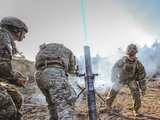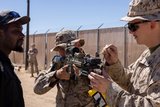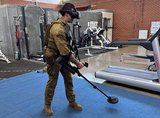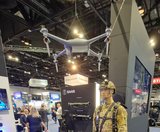Cubic tailors mortar simulator for the US Army
The company’s mortar trainer received improvements based on soldier’s feedback.
With the use, and threat of use of Chemical, Biological, Radiological and Nuclear (CBRN) weapons continuing to grow, the UK Royal Marines have recently completed a major exercise to prepare troops to operate in such environments.
Supported by the Defence Science and Technology Laboratory (Dstl), Exercise TOXIC DAGGER also involved Public Health England and the Atomic Weapons Establishment (AWE), and was the largest exercise of its kind in the country.
Specialists in CBRN from Dstl and AWE created the exercise scenarios based on current threat information.
Completing the training and exercising against the scenarios provided, ‘a challenging programme for the
Already have an account? Log in

The company’s mortar trainer received improvements based on soldier’s feedback.

The company will operate in two new locations in the coming years to better support US services.

This type of tool provides more realistic training easing the incorporation of new scenarios that accurately represent the threats of the battlefield.

The Engineering Corps has been conducting individual instruction using FLAIM Systems’ Sweeper and should start collective deployments in 2025.

The next-generation platform is motion-compatible and can be used in OTW and NVG applications.

The system can be used to prepare soldiers for both drone offensive operations and CUAS missions.